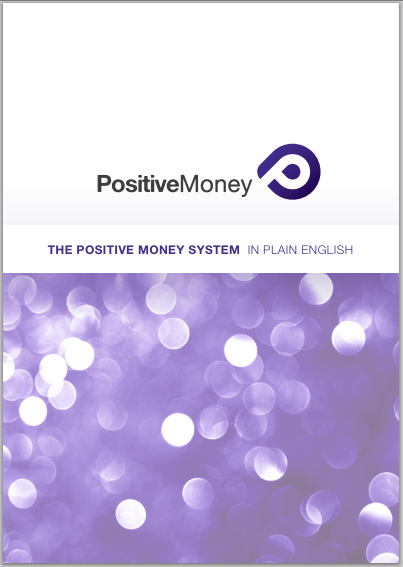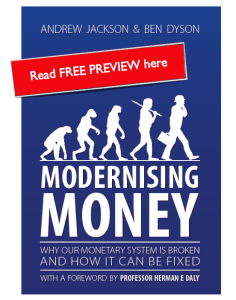The Positive Money system – in Plain English


This proposal for reform of the banking system explains, in plain English, how we can prevent commercial banks from being able to create money, and move this power to create money into the hands of a transparent and accountable body.
It is based on the proposals outlined in Modernising Money (2013) by Andrew Jackson and Ben Dyson, which in turn builds on the work of Irving Fisher in the 1930s, James Robertson and Joseph Huber in Creating New Money (2000), and a submission made to the Independent Commission on Banking by Positive Money, New Economics Foundation and Professor Richard Werner (2010).
Taking the power to create money out of the hands of banks would end the instability and boom-and-bust cycles that are caused when banks create too much money in a short period of time. It would also ensure that banks could be allowed to fail without bailouts from taxpayers. It would ensure that newly created money is spent into the economy, so that it can reduce the overall debt burden of the public, rather than being lent into existence as happens currently.

A more detailed explanation of the reforms is available in the book MODERNISING MONEY.
It also covers the transition process between the current and reformed monetary systems. It covers the economic, social and ecological consequences of the current monetary system and explains how the reforms would address these issues.
With Foreword by Prof Herman Daly, Professor Emeritus School of Public Policy University of Maryland, Former Senior Economist at the World Bank.